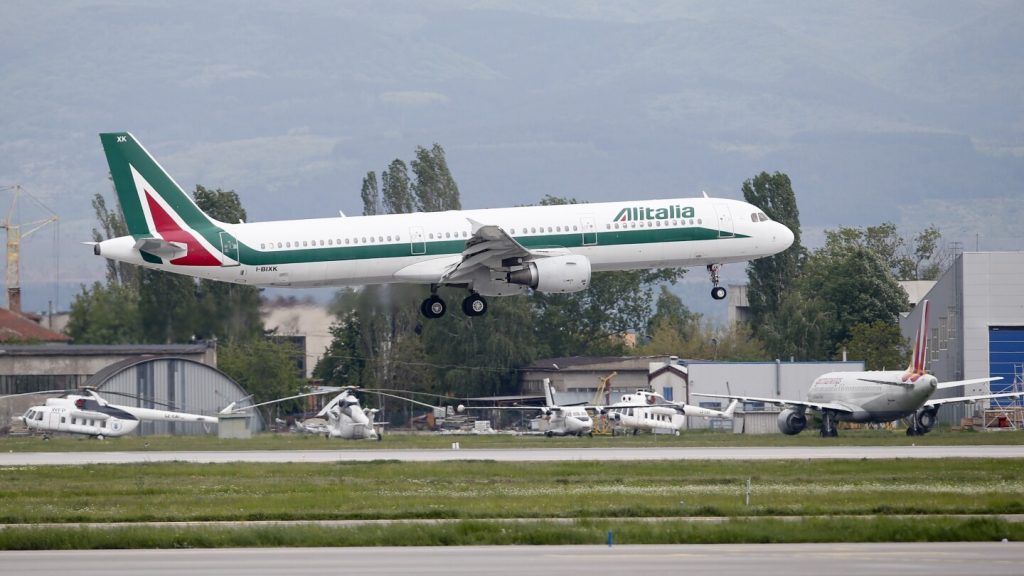Alitalia, Italy’s former national carrier, has initiated procedures for the collective dismissal of its remaining 2,059 employees. This decision comes as the successor to bankrupt Alitalia, ITA Airways, faces challenges in its merger plans with German Lufthansa. Reports suggest that merger talks between the two airlines stalled after the Italian Economy Ministry rejected Lufthansa’s proposal to adjust the price for a 41% stake in ITA Airways. Lufthansa has expressed concerns about the poor performance of the government-owned Italian airline in the fourth quarter of the year, stating that it could lead to a decrease in the airline’s value.
Despite the obstacles in the merger negotiations, Lufthansa has committed to adhering to the terms of the investment contract with ITA Airways until 2023. The German airline stated that it had signed the necessary remedy package within the agreed deadline. Meanwhile, Alitalia, which is currently under special administration and moving towards final liquidation, is planning to terminate its remaining employees by the end of the year. The final job cuts include over 1,100 flight attendants and 82 pilots, with the dismissals set to take effect in January. The administration of Alitalia has communicated these plans to the airline unions through a letter sent out this past week.
The decision to dismiss over 2,000 employees at Alitalia has raised concerns among workers and unions about the impact on the airline industry and the Italian economy. The ongoing challenges facing ITA Airways, including the stalled merger discussions with Lufthansa and the potential loss of value in the airline, highlight the difficulties faced by the aviation sector in the current economic climate. The proposed job cuts at Alitalia have sparked protests and calls for government intervention to protect the interests of workers and ensure a sustainable future for the aviation industry in Italy.
The Italian government’s role in the negotiations between ITA Airways and Lufthansa is crucial in determining the future of the airline and the impact on its employees. The rejection of Lufthansa’s proposal to adjust the price for a stake in ITA Airways reflects the government’s commitment to safeguarding the interests of the national carrier and ensuring a fair deal for all parties involved. As the talks continue between the two airlines, stakeholders are closely monitoring developments to assess the potential outcomes and implications for the aviation sector in Italy.
The challenges facing Alitalia and ITA Airways highlight the broader issues affecting the global aviation industry, including financial pressures, operational difficulties, and market uncertainties. The COVID-19 pandemic has significantly impacted air travel demand and forced airlines to adapt to a rapidly changing environment. The restructuring and consolidation efforts within the industry, such as the merger plans between ITA Airways and Lufthansa, reflect the need for strategic partnerships and cost-saving measures to ensure the long-term viability of airlines in a post-pandemic world. The resolution of the current challenges facing Alitalia and ITA Airways will have a lasting impact on the future of the Italian aviation sector and its ability to compete in the global marketplace.
As the deadline for the collective dismissal of Alitalia’s employees looms, the fate of the airline and its workforce remains uncertain. The final job cuts at Alitalia, including the termination of over 2,000 employees, represent a significant setback for the Italian aviation industry and raise questions about the future of air travel in the country. The government’s role in mediating the negotiations between ITA Airways and Lufthansa will be crucial in determining the path forward for the national carrier and its employees. The outcome of these discussions will have far-reaching implications for the aviation sector in Italy and may shape the industry’s recovery and growth in the post-pandemic era.


